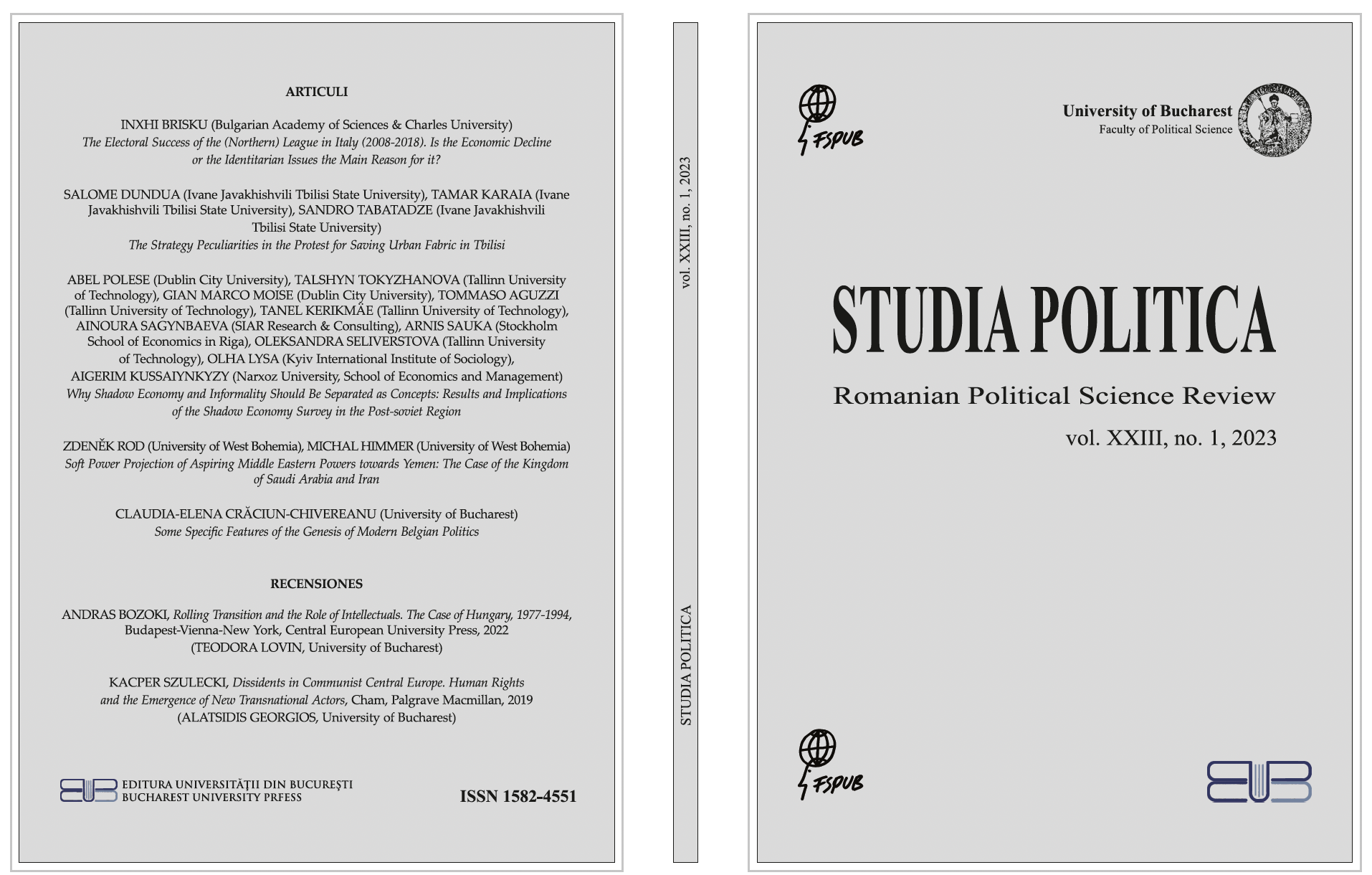WHY SHADOW ECONOMY AND INFORMALITY
SHOULD BE SEPARATED AS CONCEPTS: RESULTS AND IMPLICATIONS OF THE SHADOW ECONOMY SURVEY IN THE POST-SOVIET REGION
SHOULD BE SEPARATED AS CONCEPTS: RESULTS AND IMPLICATIONS OF THE SHADOW ECONOMY SURVEY IN THE POST-SOVIET REGION
Author(s): Abel Polese, TALSHYN TOKYZHANOVA, Gian Marco Moisé, TOMMASO AGUZZI, Tanel Kerikmäe, AINOURA SAGYNBAEVASubject(s): Politics / Political Sciences
Published by: Editura Universităţii din Bucureşti
Keywords: Shadow economy; informality; informal economy; informal practices; post-Soviet region;
Summary/Abstract: The current article is intended to bring two contributions to the study of informality. Empirically, it shares the result of the shadow economy survey for the 2017and 2018 fiscal years for Kyrgyzstan, Russia, and Ukraine. These results are used to calculate the shadow economy index estimated as a percentage of the GDP. Already established as an annual exercise for Latvia and the Baltics since 2010, the survey hasbeen applied to Moldova and Romania (since 2016), Poland (2015-2016), and Kosovo (in2018). In the frame of the project “SHADOW: An Exploration of the Nature of InformalEconomies and Shadow Practices in the Former USSR Region, the scope of the survey was expanded to Kyrgyzstan, Russia, and Ukraine, keeping the same methodology and used for direct measurement of underground activities. By doing this, we discuss the use of direct measurement approaches to suggest that, while quantitative approaches are useful to estimate the size of shadow economies, direct approaches can be used to integrate these data and look for deeper correlations between the persistence of shadow transactions and some societal tendencies that are not necessarily economic.
Journal: Studia Politica. Romanian Political Science Review
- Issue Year: 23/2023
- Issue No: 1
- Page Range: 65-88
- Page Count: 24
- Language: English

